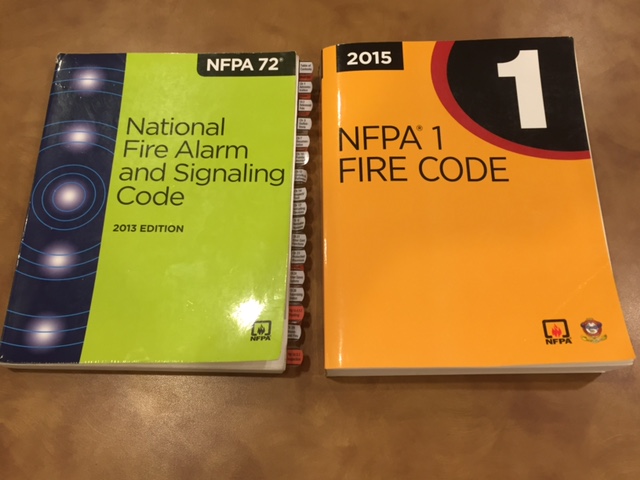Customers with alarm systems have many options for security monitoring. In fact, we detail many of these options in our post exploring Unique Security Monitoring Options. We rank alarm monitoring as one of the most important security measures that we provide. In most cases, this monitoring service represents a popular, yet non-required, option. However, certain cases prove an exception to this rule. For a variety of reasons, many alarm systems are required to be monitored. In this post, we look to explore whether or not your alarm might fit this description, and why.
We will begin by examining what central station monitoring entails, including a couple monitoring options that we often utilize. Naturally, understanding this service will help frame the discussions that follow. From there, we will look at some legal monitoring requirements for alarms. Both fire and security alarms can bring with them legal monitoring mandates. Additionally, we will look at insurance-related alarm monitoring requirements. Many customers install monitored alarms to meet insurance requirements or lower their insurance rates. Now, let’s get started by looking at basic monitoring options, including the benefits of monitored security!

We provide our customers many monitoring options to meet both their needs and local legal requirements.
Security Monitoring Options
Most of the alarm systems that we install utilize some sort of monitoring service. This goes for both burglary and fire alarms. In some cases (especially in homes) the same system monitors for both burglary and fire-related emergencies. In this section, we will discuss how this monitoring takes place. We will begin by discussing central station monitoring, our most popular monitoring service. From there, will will examine how some customers “self-monitor” their security systems. Now, let’s begin with a look at a couple central station monitoring methods.
The Methods and Benefits of Central Station Monitoring
When most people think of alarm systems, they think of systems that can “call the authorities” for help when needed. In a sense, these systems do accomplish this goal. However, the systems themselves do not dispatch the police or fire department. Rather, they send a signal out to a central call station. From there, a dispatcher calls the premises to check on the situation. If necessary, the central station dispatcher can then call the proper authorities if necessary. While most alarm systems call out to a central station, some do not. We call these systems “local” alarm systems. In short, these systems provide an audible response to an emergency without sending any signals elsewhere.
Monitored alarm systems can communicate to a central station using a couple different methods. Traditionally, we connect these alarms to a customer’s existing phone lines. This allows an alarm to send trouble signals using an existing phone structure. More recently, we’ve begun installing alarms that use cellular dialers for monitoring. This represents a slightly more reliable means of monitoring. Alarms with cell dialers will stay monitored even when a property’s phone lines go down. Furthermore, cellular dialers allow customers to self-monitor their alarms if desired. Now, let’s take a closer look at what this service entails.
Self-Monitored Systems
You may remember our post explaining 5 Benefits of Cellular Alarm Monitoring. There, we discussed the benefits of cellular burglar monitoring versus traditional phone-line based monitoring. Furthermore, we explained how our cellular dialer powered by Alarm.com allows for “interactive” cellular monitoring. This service lets our customers turn their burglar alarms on and off with a cell phone. Additionally, it also allows them to create customizable alerts based on alarm activity. For example, alarm activation and system armings and disarmings can create notification texts.

Cellular dialer alerts, such as this one from Alarm.com, keep customers connected to their alarms at all times, and also allow them to self-monitor their alarms if desired.
Generally, systems monitored through Alarm.com still dial out to a central station. However, customers sometimes wish to follow up on interactive alerts themselves. This “self-monitored” setup does not send out for the police or fire department as dependably as a central station. After all, customers have to receive an alert and call for help on their own. On the other hand, it does save customers some money, as central station monitoring raises a customer’s overall monthly monitoring rate. Furthermore, this method can potentially cut down on false alarms. While not our most popular option, we prefer self-monitored alarms to local alarms from a security standpoint. Now, let’s look at some different types of systems that may require monitoring, and why.
Cases with Mandatory Alarm Monitoring
In some cases, customers must monitor their alarm system regardless of whether or not they want to. Furthermore, some of the examples in this section even have specific required monitoring methods as well. Here, we will discuss when, why, and how burglar or fire alarm systems may be required to be monitored. Now, let’s get started with a look at one of the most commonly-required types of monitored security in the industry!
Commercial Fire Systems
Awhile back, we created a post on Recognizing Illegal Commercial Security Measures. In that post, we shared how business owners can get in trouble for insufficient or nonexistent fire alarm monitoring. In many cases, national fire codes determine what types of businesses require fire alarms and fire alarm monitoring. The International Business Code (or “IBC”) groups businesses into classification groups. Certain groups of businesses always require monitored fire detection, although other factors such as a building’s size and capacity often come into play as well.
From there, the National Fire Alarm and Signal Code and National Electric Code created by the National Fire Protection Association (or “NFPA 72” and “NFPA 70”, respectively) creates guidelines as to how security companies must install and monitor these systems. Furthermore, each state often creates their own legal requirements for fire alarm installation and monitoring. In cases where state and national codes differ, state codes take precedence. You can find Massachusetts’ own state fires laws here.
Generally speaking, if fire alarm monitoring is required, the fire alarm is required to be connected to a cellular dialer. These dialers ensure the most consistent communication path. However, unlike with their burglar alarm counterparts, fire alarm dialers do not provide interactive controls. As we mentioned, fire alarms take up the bulk of cases where local authorities require alarm monitoring. However, a recent addition to the local business scene has created more scenarios that require burglar alarm monitoring. Next, let’s take a look at how a new local industry has brought with it new burglar alarm monitoring requirements.

The Fire Alarm and Signaling Code and Fire Code created by the National Fire Protection Association lay the foundation for laws that govern fire system installation and monitoring.
Local Legal Monitoring Mandates
Until recently, local authorities required very few if any industries to install monitored security against burglaries. However, the 2016 legalization of recreational marijuana facilities in Massachusetts led to a unique change. The state tasked a new Cannabis Control Commission (or “CCC”) with creating security guidelines for these new retail stores and growing locations. Part of these guidelines involve installing monitored security against burglary in buildings that grow or sell marijuana. In fact, the CCC doubled down on these requirements. Marijuana facilities must install two monitored burglar alarms, in case one system fails.
Furthermore, state regulations require security measures that create an alert if the property’s power goes down. Fortunately, our interactive Alarm.com cellular monitoring creates this alert! At this point, we’ve seen how both state and local governments sometimes require monitored security against different threats, and in different circumstances. Now, let’s look at some non-legal, but still important, security monitoring requirements.
Insurance-Related Requirements
Occasionally insurance companies, rather than local or state law, require some sort of security monitoring. More often than not, these cases involve businesses that insurance providers see as risky to insure without the proper monitoring. Commercial properties at a high risk for fire often find themselves in this situation. Sometimes these businesses do not legally require monitored fire alarms based on low occupancy, or because they do not meet other standards that would require a fire alarm. However, insurance companies will often refuse insurance to these high-risk properties without fire monitoring. In these cases, we can provide proof of monitoring to an insurance company to show that our customer has met the insurance company’s requirements.
Putting it All Together
We hope that this post has improved your understanding of burglar and fire alarm monitoring. Furthermore, we hope that this post helps you determine if you have a system that might require monitoring service. Perhaps you have an existing alarm and want to make sure you have all your ducks in a row. Or, maybe you’re installing a system and want to install it right from the get-go. Either way, please do not hesitate to contact us if you have any questions. We will happily answer any security-related questions you may have. Furthermore, we provide free site surveys. These include helping our customers determine if they may require monitoring at their own location. Together, we can help design a system that keeps you, your property, and everyone on it as safe and secure as possible!
Feature Photo Credit: Nick Youngson on picpedia.org. Used under CC-SA BY 3.0 License.
